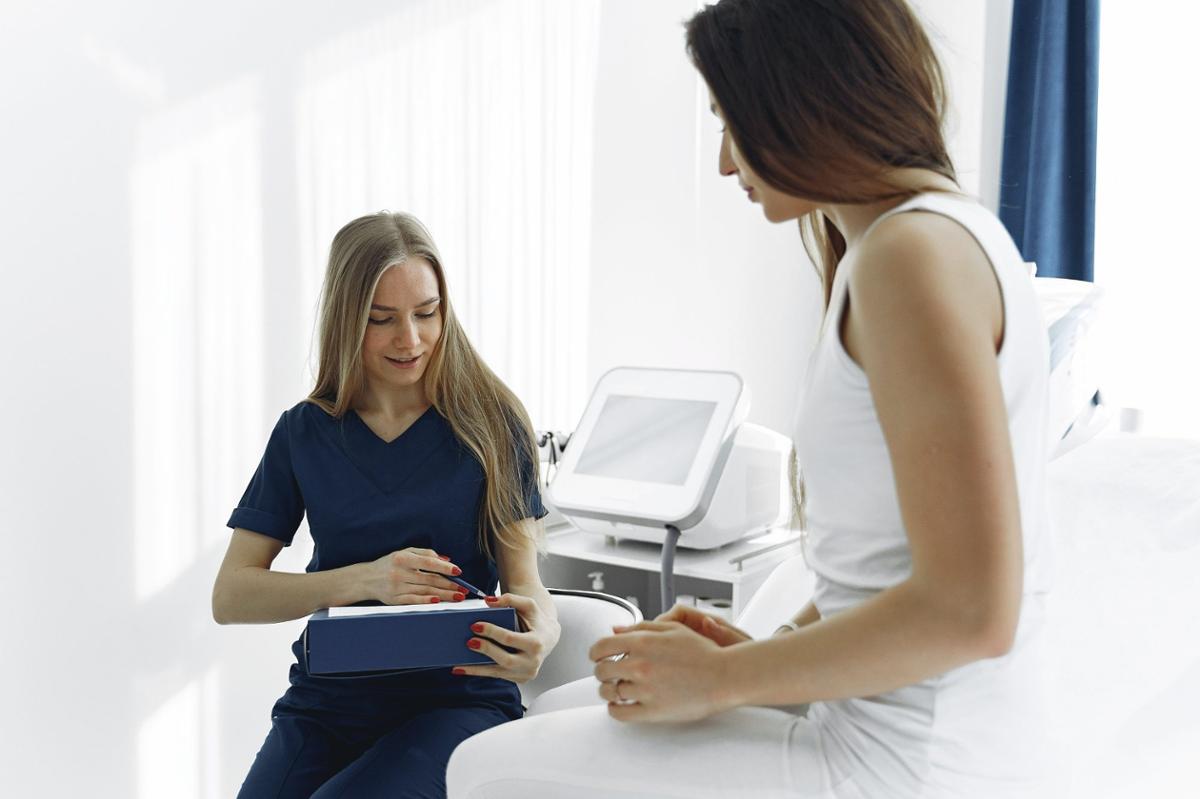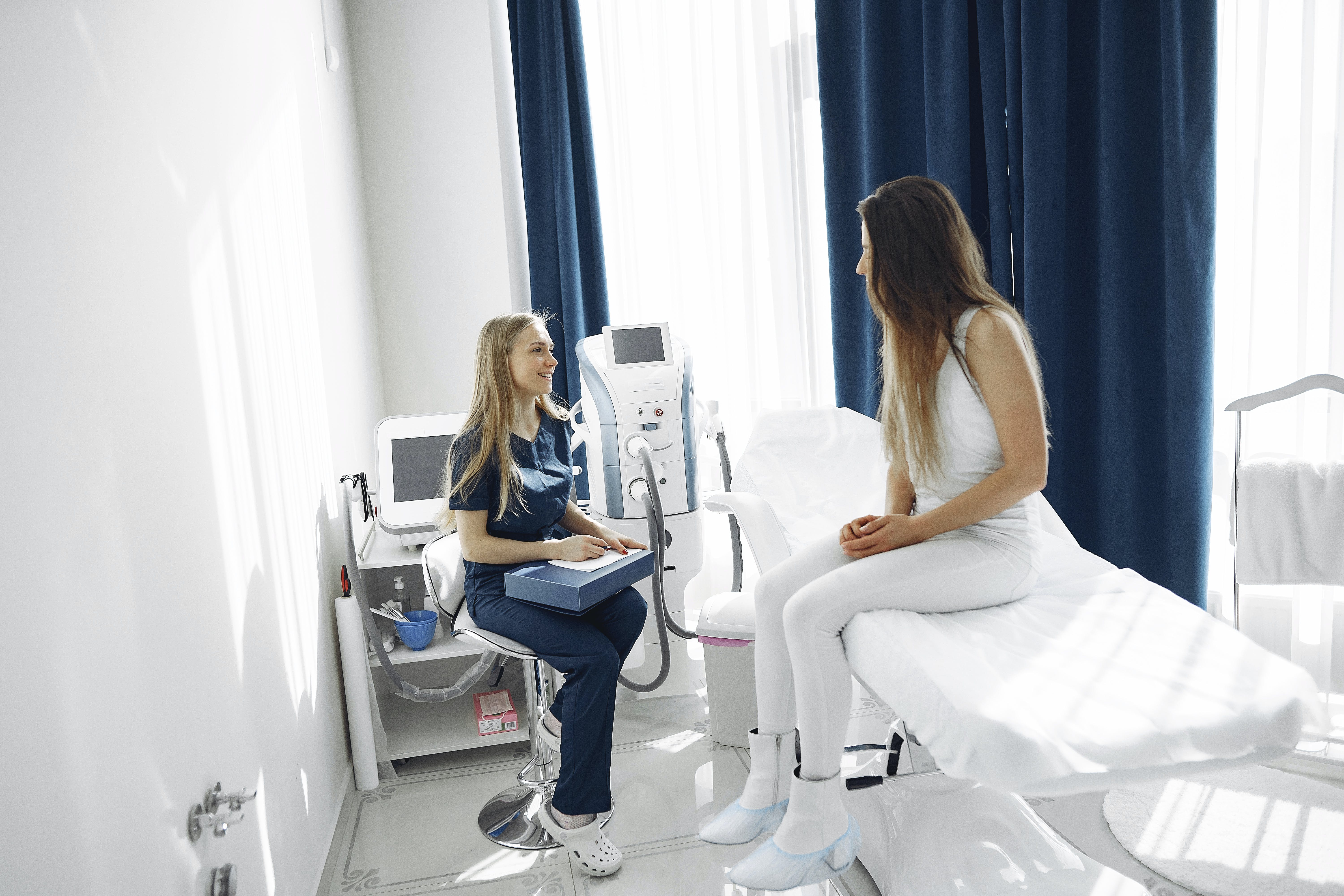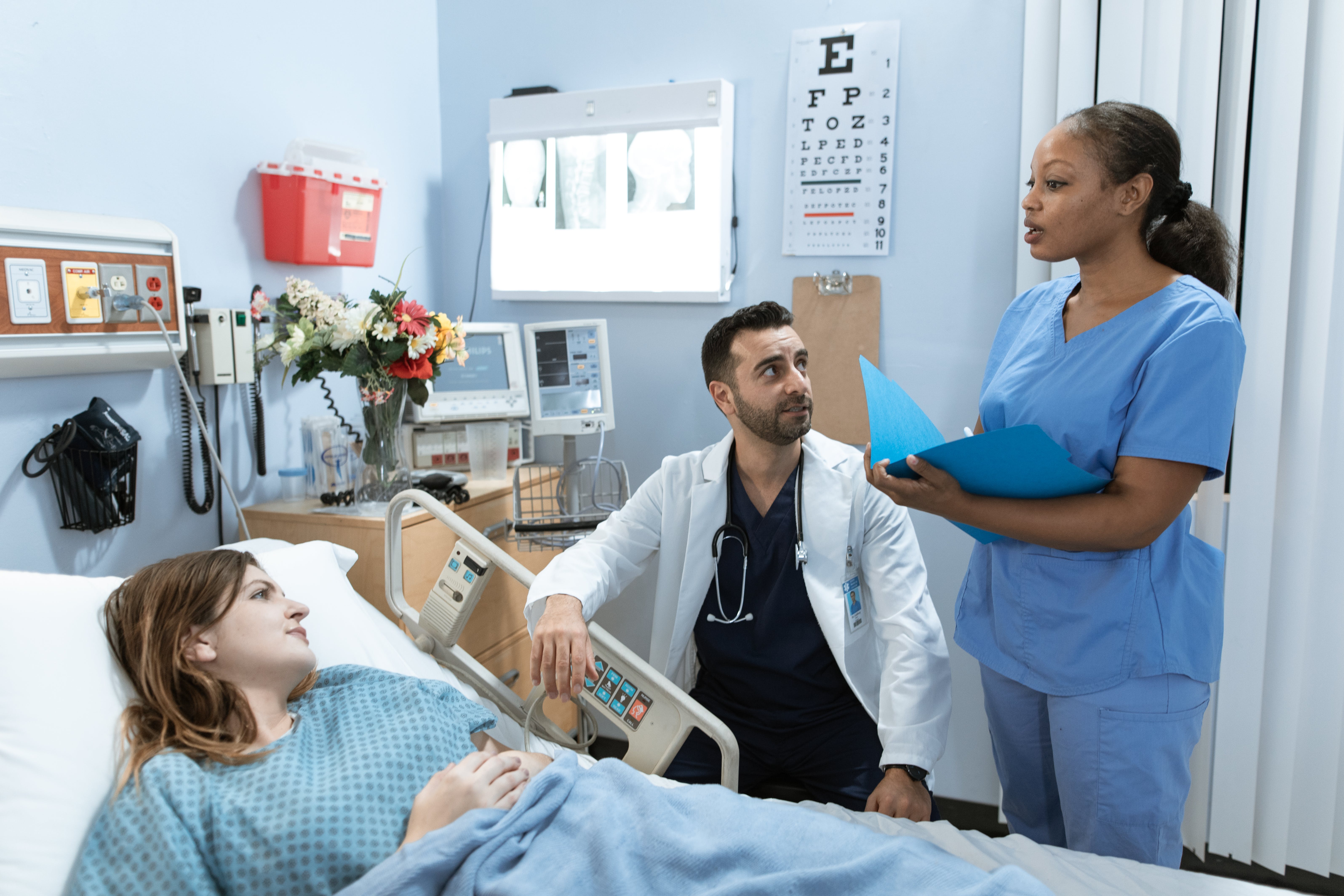How to Become an LPN: Steps to Getting Your Licensed Practical Nurse Certification

Nursing is a rewarding career option with significant growth potential and ever-increasing job demand. If you are considering joining the field, picking the right career path can significantly impact your future outlook and results.
Becoming a licensed practical nurse (LPN) is one easy way to enter a healthcare work environment and gain the basic knowledge and experience for advancing in the industry.
In this article, you will learn how to become an LPN, from the details related to your future role and scope of practice to the academic route you should follow and your future outlook for continuing your formation.

What Is an LPN?
A licensed practical nurse or LPN is a healthcare professional who provides primary care, support, and comfort to patients who are sick, injured, convalescent, or disabled. LPNs will work closely with registered nurses (RNs), physicians, and other medical staff members, playing an essential role in patient experience and satisfaction.
Becoming an LPN is the easiest and fastest way to enter the healthcare sector, as schooling and certification require less time and lower investment than ADN or BSN programs.
LPNs vs LVNs
You may have seen the terms Licensed Practical Nurses (LPNs) and Licensed Vocational Nurses (LVNs) used interchangeably. That’s because they have the same job. It’s just a matter of terminology - LVN is used in California and Texas, while most other states use LPN. However, as with many other jobs, you might come across minor differences in responsibilities depending on your workplace and the state you work in.
What Does an LPN Do? Main Duties and Responsibilities
Licensed practical nurse duties include basic medical care tasks under the direct supervision of a registered nurse or other higher medical staff. Their duties will consist of checking vital signs and primary caretaking for patients, including assisting with feeding, dressing, bathing, administering medicine, or providing comfort. LPNs also need to maintain a clear line of communication between the patient and their family, the supervising staff (generally RNs), and other caregivers.
However, there are some limitations to these tasks, given that LPNs always work under supervision. Here is what LPNs can perform:
- Administering medicine – LPNs are legally authorized to administer medications orally, topically, by inhalation, or by injection, but only with the direction of another better-certified physician or nurse.
- Starting or stopping an IV – LPNs can insert an IV, with some states requiring them to hold specific certification. They can only administer IV therapy under the direct supervision of an RN assigned to the patient care unit at all times that the LPN is providing IV therapy. They also cannot provide IV therapy in home care settings.
- Administer insulin – LPNs can administer insulin to patients, but only under the supervision of an RN or physician.
- Collect samples, including drawing blood – Collecting patient samples for routine lab testing is a typical daily responsibility for LPNs. Some may also receive training for drawing blood for specific tests and infections.
- Irrigations – While they can irrigate percutaneous tubes at entry level, LPNs are not allowed to irrigate ostomies.
- IM injections – LPNs can administer intramural and intralesional injections if they receive the proper training and are overseen by a registered nurse.
- Placing catheters – Inserting and removing male and female catheters and inserting Foley catheters fall within the potential duties of an LPN.
Learn more about the duties and responsibilities of a licensed practical nurse from our article on the LPN nurse role.

What Is the Difference Between LPNs and Other Nursing Levels?
Although all nursing personnel will work together in a healthcare setting, there are some critical differences between the roles you may occupy. Here is how an LPN will compare to two other related nursing positions:
LPN vs. RN
The central difference between an LPN and an RN is the independence permitted within their work environment. Although registered nurses may still require supervision from a physician or doctor for specific tasks, most of their responsibilities are completed independently within a broader team.
LPNs can only perform their duties under the direction and oversight of better-certified staff, including registered nurses or physicians. The coordinating supervisor depends on where an LPN works. Some standard practices, such as administering and supervising a blood transfusion, are only performed by a registered nurse.
Our LPN vs RN comparison provides an in-depth analysis of the two roles. Have a look!
LPN vs. CNA
Certified Nursing Assistants (CNAs) offer only the most basic level of care, such as providing support in basic daily activities (eating, bathing, or getting dressed), helping patients move around, and fulfilling basic medical tasks. Additionally, a CNA will only work under the supervision of an LPN or RN.
This difference in responsibilities arises from a CNA’s limited training, lasting anywhere from 4 to 12 weeks to complete. A certified nurse assistant can pursue a CNA-to-LPN bridge program to advance their position and duties. This choice is faster than completing a vocational diploma program but requires CNA accreditation, lasting between 6 and 12 months.
Steps to Become a Licensed Practice Nurse: LPN Education Requirements
We will provide a comprehensive step-by-step process to get your practical nursing licensure, from meeting the requirements of a diploma program to taking the required examination. Here is how to get LPN certification:
1. Get Your High School Diploma or GED
To be admitted to a practical nursing licensure program, you must be at least 18 years old, have a high school diploma or pass the General Education Development Test (GED), and meet a minimum of 2.5 GPA requirement.
You will need to provide transcripts, a drug test, criminal background checks, and CPR certification.
2. Graduate from a PN Diploma Program
To get your LPN certificate, you must graduate from an accredited PN diploma program. These programs help you gain basic nursing skills and knowledge through a combination of coursework and clinical experience. You can enroll in this educational path at vocational schools, as well as online and offline colleges.
Coursework typically includes:
- Human Anatomy
- Foundations of Practical Nursing
- Pharmacology
- Health Promotion
- Pathophysiology
- General Education Courses
To get your PN diploma, you must attend and complete all learning activities specified in the course syllabus and receive a passing grade of at least “C” or higher in all courses.
Nightingale College’s PN Diploma Program combines online didactic instruction with on-ground supervised field experience in certified institutions to prepare aspiring nurses to receive their LPN licensure and work in the field. You need 28 semester credits for nursing core courses and 14 for general education to receive your diploma.
Learn more about our PN Diploma Program!
3. Take the NCLEX-PN Exam to Receive Your LPN Licensure
In order to get an LPN license, you must pass the NCLEX-PN exam provided by the National Council of State Boards of Nursing (NCSBN). You will need to pay a fee, which varies depending on where you take the exam.
The exam will assess your knowledge in nursing fields, such as:
- Coordinated care
- Safety and infection control
- Health promotion and maintenance
- Psychosocial integrity
- Basic care and comfort
- Pharmacological therapies
- Reduction of risk potential
- Psychological adaptation
To ensure you pass the exam, you must respond to at least 85 questions within the allotted time. If you do manage to answer before your time runs out, your last 60 questions will be assessed and compared to a pre-established passing standard.
4. Begin Your Career as an LPN
If you have successfully passed the NCLEX-PN exam, you are eligible to seek employment and work as a licensed practical nurse.
You will also need to renew your LPN state license every few years by earning credits for continuing your education, meeting various competency requirements, and paying renewal fees. Your state establishes its own renewal timeline and specific regulations for maintaining your LPN license.
How Long Is Schooling for LPNs?
A diploma program for practical nursing will take you as little as 12 months or the equivalent of 3 academic semesters to complete.
Once you graduate, you become eligible to take the NCLEX-PN exam. If you fail it, you can retake the exam after 45 days of your previous attempt.
If you choose Nightingale College’s PN Diploma program you can complete your schooling in the shortest time possible and with the maximum convenience guaranteed by the combination of fully online didactic instruction and on-ground supervised field instruction. By the end of our program, you will have gained the skills and knowledge necessary for providing quality and competent patient-centered care adapted to patient needs.
Discover more about Nightingale’s PN Diploma program!

What Are the Costs of Practical Nursing Programs?
The tuition fees and taxes for a PN diploma program range from $10,000 to $15,000, one of the most affordable forms of accreditation for the nursing field. You can generally receive scholarships, subject to review and confirmation by the institution's Financial Aid Department.
The PN Diploma Program at Nightingale College costs $14,100 in tuition, staying within the range of fees for such accreditation. The affordability and flexibility provided by a hybrid system with online instruction and on-ground supervised field experience make the program a viable entry path into the nursing field.
Start your career as an LPN by enrolling in our PN Diploma Program. Send in your application today!
Where Can You Work as a Licensed Practical Nurse?
Once you pass the NCLEX, you are eligible to practice as a licensed practical nurse in various work environments.
Whether providing direct patient care or engaging in administrative tasks, you will have a broad array of options to leverage your skills and knowledge as an LPN. You can find work in:
- Nursing homes - where you cater to the needs of elderly patients with significant medical requirements that surpass home care but don't require hospitalization.
- Hospital settings - where LPNs comprise around 13% of the workforce.
- Physician's office
- Rehabilitation facility
- Outpatient surgery center
- Immunization clinic
- Medical call center
- School environment
- Home care - as a home care health aide, you can provide assistance to home care patients with their hygiene and health evaluations.
- Insurance companies - where you will handle claims and develop administrative skills.

Why Choose to Become an LPN?
Now that you know how to become an LPN, you may ask yourself: is it worth choosing this career path? There are several reasons to become a nurse and an LPN in particular. But in the end, the answer depends on your career plan and expectations.
Getting a licensed practical nurse certificate can be a rewarding career, especially if you value the experience gained by hands-on tasks and duties and want to enter the job as soon as possible. The cost requirements for LPN academic programs are also the lowest possible of all nursing educational paths.
Most importantly, starting as an LPN is an ideal option to explore the nursing field before committing to a longer and more expensive degree to become an RN. The licensed practical nursing position retains considerable career flexibility, allowing you to get familiar with the work environment while still under the guidance of older or better-certified staff.
Start your new career in the practical nursing field with our PN Diploma program!
Career Advancement Opportunities for Licensed Practical Nurses
Licensed practical nurses have various options for advancing their careers, depending on their professional goals.
Pursue specialized certification
One way of advancing your career as an LPN is by getting certifications in fields of interest. While entirely voluntary, they can give access to additional job opportunities and higher pay. Here are some typical LPN certifications:
- IV therapy
- Pharmacology
- Organ transplant coordination
- Developmental disabilities care
- Correctional health
If you would instead advance your career beyond practical nursing, you should pursue an additional complete learning program.
Become an RN
Another frequent next step is becoming an RN in order to work more independently within a healthcare setting, access new job positions, and increase your salary prospects. You can learn how much RN nurses make a year from our guide on nurse salaries by state.
There are multiple educational routes to advancing your education to become an RN. Each route brings its own prospects and challenges.
- Getting an Associate Degree in Nursing - Enrolling in an LPN-to-ADN bridge program is the most common step LPN nurses take on their way to becoming an RN. It takes only 16 months, after which you become qualified for the same responsibilities as a nurse with a BSN degree.
Make the next step in your career with Nightingale’s LPN-to-ASN program!
- Getting a Bachelor’s Degree in Nursing - A BSN degree program takes more time (4 years) and money to complete than the ADN bridge program and you may get to rehash knowledge that you have already mastered while learning for your LPN certification. However, it makes you eligible for high-paying BSN jobs while giving you a complete curriculum for being a top earner in your field. Read our guide to learn more about how to get your BSN degree..
Enroll in Nightingale’s BSN Program and advance your nursing career!
LPN Job Outlook
With the projected 5% growth in positions through 2032, you are sure to find positions as an LPN now and in the future. Causes for the increasing demand for nursing jobs include the growing average age of current personnel, the projected retirement of more than 1 million nurses, as well as a slow nursing school enrollment rate, all of which result in constant nursing shortages.
LPN Salary
Beyond increased availability, the position of a licensed practical nurse is attractive from the salary point of view. According to the U.S. Bureau of Labor Statistics, LPNs can receive, on average, $60,790 per year or $29.23 per hour, with the highest mean salary ($63,730 per year) being in skilled nursing care facilities. Thus, by completing only one year of LPN training, you can make over $13,000 more than all other healthcare occupants.
Note that wages will vary depending on the state. LPNs have the best annual salary prospects in California ($76,580), Rhode Island ($75,470), and Washington ($75,410), with the lowest salaries being found in Alabama ($48,320), Mississippi ($49,050), and Arkansas ($49,360).
Read our analysis of the LPN nursing salaries by state to find out how much you’d earn as a licensed practical nurse where you live.
LPN Certification FAQs
What Is the Shortest Time to Become an LPN?
The shortest period of completion of a PN diploma program is six months, although most programs last 12 months. Thus, if you complete the fastest program and pass the NCLEX-PN on your first try, you can become an LPN within 6 months.
Is It Hard to Get Your LPN Certificate?
Receiving your PN diploma can be easier than completing other types of nursing accreditations, but it can still prove complicated. Some courses in the PN diploma curriculum may prove challenging for some students, as they will include science-oriented subjects, such as biology, chemistry, or anatomy. How difficult becoming an LPN is for you specifically will depend on your familiarity with the basics of these subjects. Another frequent hurdle is getting used to the medical terminology used across all classes you will attend.
The overall difficulty will depend on your propensity for the nursing field and your ability to accumulate basic medical concepts from various scientific and therapeutic subjects. However, becoming an LPN will be easy if you are willing to actively learn and assimilate the required concepts.
Learn more about how hard nursing school is, from common challenges to how to overcome them.
Is Becoming an LPN Easier Than Becoming an RN?
Yes. Becoming a licensed practical nurse is one of the easier ways to start a career in the healthcare industry. Instead of completing a 2-to-3-year ADN degree or a 4-year BSN to become an RN, you only need to complete a 1-year-long PN diploma program and then pass the NCLEX-PN exam to start as an LPN.
Can You Become an LPN Online?
Yes, you can get your LPN certification online. Many institutions host programs where you can complete your coursework online. However, regardless of the educational institution, you will still be required to perform clinicals in a healthcare facility to gain practical knowledge.
At Nightingale, all didactic instructional classes and activities from the PN program are held online, giving you maximum flexibility and accessibility. To complete your required clinicals, we partner with healthcare facilities where you'll get the best practical training to perform LPN duties.

